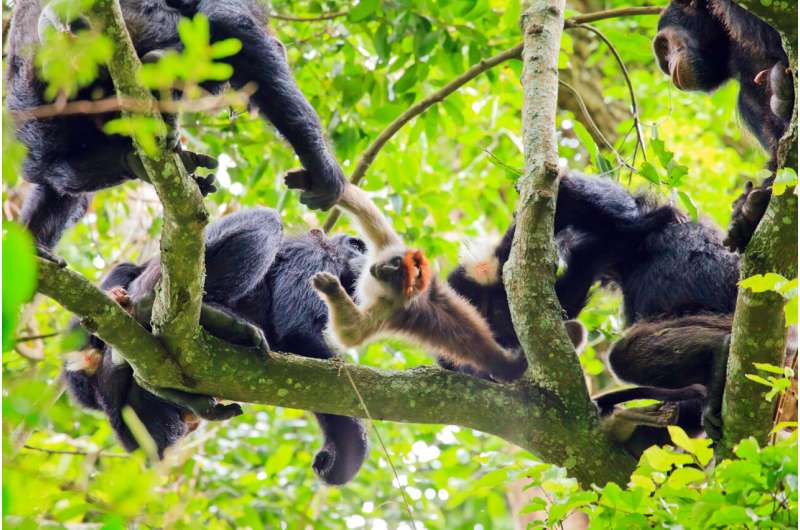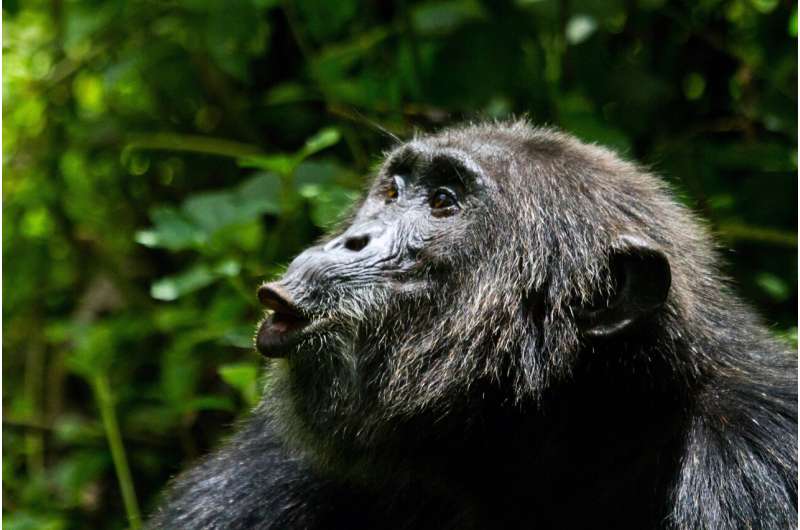
Chimpanzees use communication to coordinate their behavior. When Chimpanzees produce a specific vocalization, known as the "hunting bark," they recruit more group members to the hunt and capture their prey more effectively, according to new research.
Chimpanzees look for opportunities to acquire meat from time to time. Chimpanzees are better off having friends hunting with them. For the first time, scientists have found that communication is important in recruiting group members.
The chase is more effective because of hunting barks.
By studying more than 300 hunting events recorded over the last 25 years at the Kanyawara chimpanzee community in Uganda, researchers from the University of Switzerland and the University of Boston have discovered that by making bark vocalizations, the wild apes act like hunters. "Chimps that produce hunting barks give information to those nearby about their motivation to hunt, and this information may persuade reluctant individuals to join, boosting the overall chances of success," says Joseph Mine, a student at the Department of Comparative Language Science.
It can be difficult to hunt monkeys in dense tropical rainforest. Group work can be done more efficiently with vocal communication. "Strikingly, following the production of hunting barks, we observed more hunters joining, greater speed in beginning the chase, and a shorter time to make the first capture," said Zarin Machanda, who heads up the Kanyawara Chimpanzee.
More research needs to be done to find out why the barks have this effect. It is unclear if these barks are given to coordinate the precise actions of the group, or if they are simply advertisements for an individual's decision to hunt, which in turn increases the likelihood of others joining them and with more hunters they are more effective.

Communication and cooperation evolve together.
The presence of skilled hunters as well as potential distraction may affect the outcome of a hunt, but the occurrence of hunting barks is still a key factor. Communication plays a key role in coordinating complex acts of cooperation in humans and this is the first indication that vocal communication might also facilitate group cooperation in our closest living relatives.
Communication and cooperation are closely related to each other. As one became more complex, so did the other, generating a feedback cycle which led to language and unique forms of cooperation.
7 million years ago was when the evolutionary roots were first found.
It was not known how far back in humans' evolutionary past this relationship could be traced. The results show that the relationship between vocal communication and group-level cooperation is old. The link seems to have been in place for at least 7 million years.
More information: Joseph G. Mine et al, Vocal signals facilitate cooperative hunting in wild chimpanzees, Science Advances (2022). DOI: 10.1126/sciadv.abo5553. www.science.org/doi/10.1126/sciadv.abo5553 Journal information: Science Advances